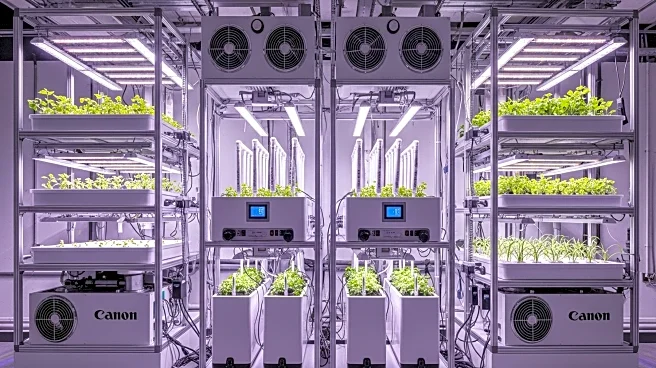What is the story about?
What's Happening?
A report co-authored by Dr. Keith Warriner from the University of Guelph highlights safety risks in indoor farming. While indoor farming offers controlled conditions for plant growth, it also creates environments where harmful bacteria like salmonella and listeria can thrive. The report identifies seeds and water as primary hazards due to insufficient pathogen testing and recirculation practices. The findings call for improved safety standards to mitigate these risks.
Why It's Important?
The report underscores the need for enhanced safety protocols in the growing indoor farming industry. As indoor farming becomes more prevalent, addressing these risks is crucial to ensure food safety and public health. The industry must balance effective sanitation with maintaining beneficial microbial communities. Failure to address these issues could lead to foodborne illness outbreaks, affecting consumer trust and industry growth.
Beyond the Headlines
The report suggests a need for regulatory bodies to establish comprehensive safety guidelines for indoor farming. This could lead to increased research and development in pathogen detection and control technologies. The findings may also influence consumer perceptions and demand for indoor-farmed products, potentially impacting market dynamics.
















